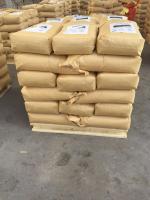Water treatment is a critical process that aims to remove impurities, contaminants, and pollutants from water, making it safe for various applications such as drinking, industrial processes, and environmental protection. Flocculants play a crucial role in this process by promoting the aggregation of fine particles and facilitating their removal. Among the various types of flocculants, cationic flocculants, especially those in the form of microbeads, have gained attention for their unique properties and applications in water treatment.
Cationic flocculants are polymers that carry positive charges along their molecular chains. These positively charged groups attract and neutralize negatively charged particles in water, causing them to clump together into larger, settleable flocs. This process simplifies the removal of suspended solids and colloidal particles from water, enhancing the efficiency of sedimentation and filtration.
Positive Charge: The cationic nature of these flocculants allows them to effectively neutralize negatively charged particles, including clay, algae, and other organic matter.
Polymeric Structure: Cationic flocculants are often high molecular weight polymers with multiple positive charge sites, providing numerous binding sites for particles in water.
Solubility: Many cationic flocculants are water-soluble, allowing for easy application in various water treatment processes.
Versatility: Cationic flocculants can be used alone or in combination with other coagulants and flocculants to tailor their performance to specific water treatment needs.
Microbeads are small, spherical particles with diameters typically ranging from a few micrometers to a millimeter. In the context of cationic flocculants, microbeads are designed to encapsulate the flocculant polymer. This encapsulation provides several advantages for water treatment applications:
2. Industrial Water Treatment:
3. Oil and Gas Industry:
4. Mining and Mineral Processing:

